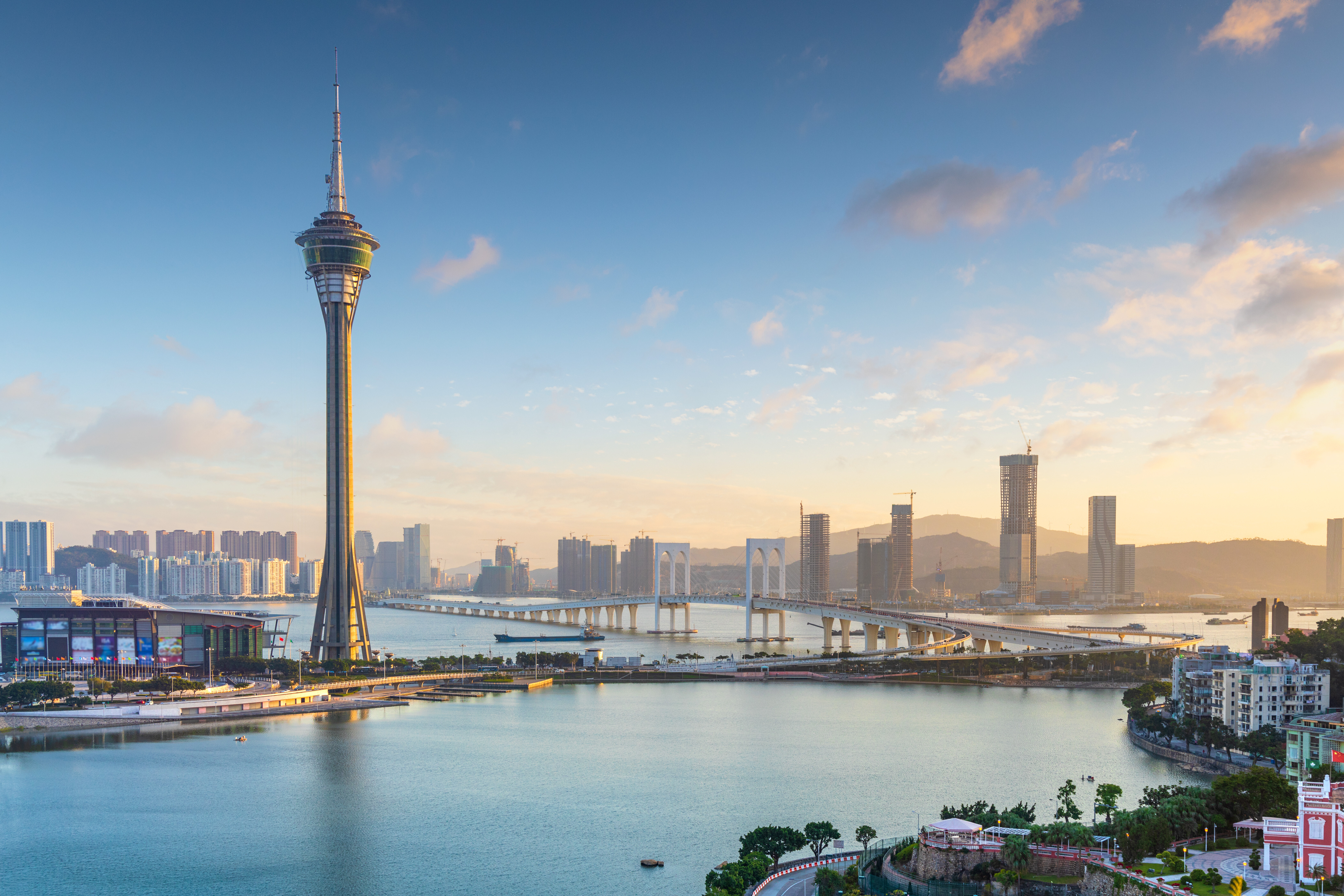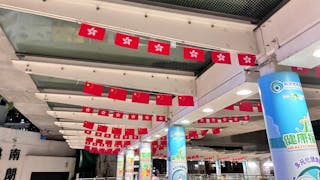香港與廣東省政府在5月14日舉行的第22屆粵港合作聯席會議上,簽署了5項合作協議和備忘錄,為進一步深化兩地經濟和法律合作鋪平道路。
行政長官林鄭月娥當日參加了與廣東省省長馬興瑞等的視頻聯席會議。雙方重點加強5個方面的合作:一、持續做好粵港疫情聯防聯控工作,穩妥有序優化粵港通關安排,促進兩地互聯互通;二、紮實推進前海深港現代服務業合作區、河套深港科技創新合作區等重大合作平台建設,積極拓展合作空間,高水平打造深港口岸經濟帶;三、加強創新創業合作,藉粵港澳聯合實驗室等平台載體,共同開展關鍵技術攻關,合力提升粵港產業發展能力,打造全球科技和產業創新高地;四、深化商貿和消費合作,攜手開拓國內國際市場,共同打造國際消費樞紐;五、促進兩地青少年交流交往,支持更多香港青年來粵創新創業就業,在醫療、生態環境、食品安全等民生領域加強合作,推出更多造福兩地居民的務實舉措,提升宜居宜業宜遊水平。
簽署5項合作協議和備忘錄
林鄭月娥和馬興瑞又共同見證了簽署《粵港馬產業發展合作協議》、《廣州市人民政府、香港賽馬會關於共同促進穗港賽馬產業發展的框架合作協議》、《廣東省體育局與香港賽馬會大灣區體育項目合作補充備忘錄》、《廣東省商務廳與香港特別行政區政府投資推廣署深化粵港澳大灣區投資推廣合作備忘錄》、《廣東省商務廳、香港貿易發展局開啟「十四五」雙循環商機深化粵港經貿合作備忘錄》5項合作協議和備忘錄。
香港作為國際金融和貨幣交易中心,有望繼續發揮本身的獨特性,從而提升大灣區在國家發展和開放政策中的作用。因此,香港將促進粵港兩地金融市場的互動和交流,努力在大灣區的不同城市建立香港的保險和保險售後服務。換句話說,香港保險業預期會滲透內地,不僅為香港人,而且為內地和澳門居民提供服務。一旦港珠澳大橋疫後重開,香港將實施確認車輛及人員保險的政策,廣東將廣泛接納從香港進入的車輛。
最重要的是,在深圳前海區,將實施「香港投資與香港法律」的政策,意味着可以允許在香港註冊的企業和公司以香港法律作為民事合同適用的法律。這項試點計劃不僅在前海實行,且會擴展至深圳以至整個大灣區,有助促進大灣區法治的進程。
香港還將與廣東和澳門的法律部門合作,建立調解平台,以促進大灣區的調解工作。三方將就法律事務和及法律服務糾紛進行合作和交流。
為便利港珠澳大橋的交通往來,粵港兩地將簡化申請程序及減低收費,而無須實行車輛配額制度,港方希望粵方能放寬港人的檢疫措施,以便能夠以有限、漸進和適當的方式恢復跨境交通和人員流動。
香港與廣東省簽署上述具有里程碑意義的協議和備忘錄,對香港,以至對澳門的經濟和法律發展都具有重要意義。
首先,香港作為國際金融中心的地位,將在大灣區的發展中得到充分體現,並同時強化了香港在未來幾年作為華南地區的國際法律仲裁中心的角色。
其次,從化市的賽馬和馬術現代化,必須依靠香港的人才、專業和知識。
澳門應考慮本身強項
這一來,澳門最好也考慮本身有哪些強項,對大灣區的經濟和法律發展有所幫助。
如果澳門在旅遊業和文化歷史遺產方面一直保持着傳統優勢,那麼,憑藉經驗豐富的導遊、熟練的推廣工作,以及豐富的歷史文化遺產,澳門的旅遊業可以通過適當和高水準的教育資歷認可而進一步發展壯大。理想情況下,大學和大專院校應該為內地學生在澳門註冊和學習提供更多國際和區域組織認可的學位和實用文憑。同樣,澳門旅遊業的成功,都可進一步推動澳門與大灣區內地城市之間的合作框架和協議,包括澳門旅遊業專家可提供幫助,以重塑一些內地城市的旅遊業策略,使之更加國際化。
如果體育運動是香港和廣州之間另一個重要的合作領域,那麼香港和澳門都應該探索本身的運動領域,這些領域需要在內地的協助下進一步實現現代化。以足球為例,香港和澳門的足球總會都應該在政府的幫助下與大灣區城市的足球協會更緊密合作。區域和亞洲足球錦標賽可能在大灣區舉行,但澳門和香港都必須首先提高其競技水平和足球管理水平。足球在世界其他地方不僅是一種專業,而且是一個利潤豐厚的行業,香港和澳門都可以通過首先向內地學習,從而趕上內地水平,因為內地的足球業更加普及和發達。
總之,香港與內地在5月14日簽署的具有里程碑意義的協議和備忘錄證明,在經濟和法律領域的合作可以產生雙贏的局面,香港和內地城市都將從中受益。澳門在這種區域合作的政治經濟中也是一樣。因此,在未來幾年中,澳門與大灣區之間更緊密合作的政策議程將優先考慮如何最大限度地發揮澳門的潛力。
OPINION-Deeper Economic-Legal Cooperation between Hong Kong and Guangdong: Implications for Macau
The five agreements signed between the governments of the Hong Kong Special Administrative Region (HKSAR) and the Guangdong province during the 22ndPlenary of Hong Kong-Guangdong Cooperation Joint Conference on May 14 was another watershed paving the way for the deeper economic and legal cooperation between the two places.
The HKSAR Chief Executive Carrie Lam led a delegation to participate in the video joint conference with the Guangdong side, which was led by Governor Ma Xingrui. The five agreements signed by the two sides include a Memorandum of Understanding on the Inception of Business Opportunities in the 14thFive-Year Plan of Dual Circulation and the Deepening Guangdong-Hong Kong Economic Cooperation, a Memorandum of Understanding on the Deepening of Guangdong-Hong Kong-Macau Greater Bay Area Investment Promotion, a Cooperative Framework for Guangdong and Hong Kong to Develop the Horse Industry, a Framework Agreement on the Mutual Promotion and Development of the Guangdong-Hong Kong Horse Industry, and a Memorandum of Understanding of Cooperation in the Greater Bay Area’s Sports Project.
The plenary meeting agreed to implement the decisions made by the Leading Small Group on the Construction of the of the Greater Bay Area (GBA). Specifically, the HKSAR is to consolidate and elevate its international financial status and its position as a shipping centre, trade centre and international aviation transit point, while at the same time establishing an international technological and innovation hub, improving the infrastructure of Hong Kong-Shenzhen land and coastal facilities, supporting Hong Kong enterprises to expand their business into the mainland market, and assisting the Hong Kong youth to develop their career and start up their business in the GBA. All these areas necessitate Hong Kong’s closer cooperation with the Guangdong government.
Moreover, the HKSAR is expected to develop its uniqueness as an international financial and monetary centre, elevating the functions of the GBA in the national development and open-door policy. As such, the HKSAR is to promote the mutual interactions and flows of the Guangdong-Hong Kong financial markets, to strive for the establishment of Hong Kong’s insurance and post-insurance services in different cities in the GBA. In other words, insurance services will be expected to penetrate the mainland, embrace consultative services for not only Hong Kong people but also the mainland residents and Macau people. The HKSAR will also implement the policy of recognizing the insurance of cars and vehicles as well as their personnel once the Hong Kong-Zhuhai-Macau bridge will be reopened and will readmit cars and vehicles from the HKSAR extensively.
Most importantly, in the region of Shenzhen’s Qianhai, the policy of “Hong Kong investment and Hong Kong law” will be implemented, meaning that the Hong Kong-registered enterprises and companies can be allowed to use the Hong Kong law as the basis of civil law and business transactions in Qianhai. This pilot plan can and will be expanded to the whole region of Qianhai, Shenzhen and even the entire GBA, thereby helping the process of promoting the rule of law in the GBA.
Hong Kong will also cooperate with the legal departments of Guangdong and Macau to set up a mediation platform for the sake of promoting mediation work in the GBA. All the three sides will coordinate and exchange on the legal issues and disputes regarding legal services.
For the facilitation of traffic across the Hong Kong-Zhuhai-Macau bridge, both Guangdong and Hong Kong will simplify the application procedures and lower the fees without imposing a quota system, The HKSAR government hopes that the Guangdong counterpart can support the relaxation of quarantine measures for the people of Hong Kong so that the cross-border traffic and human interactions will be resumed in a limited, gradual and appropriate manner.
The Hong Kong Jockey Club also signed a cooperative framework agreement with the Guangzhou city in three areas: the horse-racing course track in the city of Conghua will introduce international horse-racing competition, improve its facilities, and build up its horse industry’s logistics and supply chain. Veterinary services for horses, academic research, and the technicalities of managing horses and equestrian, such as feeding and bedding, horse shipment, local transportation and quarantine, will all be included in the detailed cooperation between the two sides.
The city of Conghua is keen to expand its horse-racing to an international standard by 2025, when the international horse-racing tournament will be held. The existing horse-racing stadium will need much improvement, including the expansion of dormitory, horse-houses, and horse-racing track. The modernization of horse-racing and equestrian in Conghua clearly needs the assistance from the HKSAR.
On the same day of May 14, Yang Wanming, the vice president of the Supreme People’s Court of China, signed an agreement with the Hong Kong Secretary for Justice Teresa Cheng on the mutual recognition and assistance in dealing with bankruptcy procedures. The cities of Shanghai, Xiamen and Shenzhen will be the pilot cities where the courts from both sides will recognize the mutual bankruptcy procedures and cooperation. Moreover, the Hong Kong liquidators of debt can apply to the mainland side for assistance. Similarly, the mainland debt managers can and will follow the common law procedures in Hong Kong to apply for recognition and assistance in the mainland’s bankruptcy processes. All these technical arrangements will improve the processes of bankruptcy application and the system of debt reorganization.
The altogether six landmark agreements signed between the HKSAR and Guangdong side on May 14 had significant implications for the economic and legal development of not only Hong Kong but also Macau.
First, Hong Kong’s status as an international and financial centre will be fully utilized in the development of the Greater Bay Area, including Guangdong and Shenzhen where the legal system remains to be improved further. As such, Hong Kong’s solid legal system and practices remain significant in the moderation of law in the Greater Bay Area. The mutual assistance in dealing with bankruptcy law and procedures between Hong Kong and such mainland cities as Shanghai, Fujian and Shenzhen means that some aspects of the Hong Kong law can be experimented and utilized in the mainland flexibly, thereby positioning Hong Kong strong for its role as an international legal arbitration centre in South China in the years to come.
Second, as mentioned before, the modernization of horse-racing and equestrian in Conghua means that it must rely on the talents, expertise, and knowledge from Hong Kong.
If so, Macau may need to ponder which specific areas of the special administrative region are strong enough to assist the economic and legal modernization of the Greater Bay Area. Recent discussions about the establishment of Macau’s securities centre are undoubtedly a positive idea to move Macau away from its overdependence on the gaming and casino industry; nevertheless, the development of securities centre in Macau appears to rely on the mainland expertise unless Macau is to train up its required personnel very quickly by forging a governmental cooperation with the private sector and local tertiary institutions.
If Macau has been traditionally strong in its tourist industry and the promotion of cultural and historical heritage, the expansion of the tourist sector with its experienced tour guides, skilful publicity work and rich cultural and historical heritage can be expanded further with proper and high-level educational recognitions. Universities and tertiary institutions should ideally offer more internationally and regionally organized degrees and practical diplomas for the mainland Chinese to enrol and study in Macau. Similarly, the success of the tourism in Macau can be promoted further in any cooperative framework and agreement between the Macau special administrative region and the mainland cities in the Greater Bay Area, including the possible assistance provided by Macau’s tourism experts to help reshape and internationalize some mainland cities’ tourism strategies.
If sports constitute another critical area of cooperation between Hong Kong and Guangzhou, then both Hong Kong and Macau should explore their areas of sports which need to modernize further with the assistance and cooperation from the mainland. Take soccer as an example, both the soccer associations of Hong Kong and Macau should reach out, perhaps with the help of their governments, to collaborate more closely with the soccer clubs in the cities in the Greater Bay Area. Regional and Asian football tournament may be held in the Greater Bay Area, but both Macau and Hong Kong will have to elevate their competitive levels and managerial standards of soccer first. Soccer is not just a professional but also a highly lucrative business industry in other parts of the world, and both Hong Kong and Macau can catch up by learning more firstly from the mainland, where its soccer industry is far more popular and well developed.
In conclusion, the landmark agreements signed between Hong Kong and the mainland on May 14 were a testimony to the fact that cooperation in economic and legal areas can produce a win-win situation in which both the HKSAR and mainland cities will benefit tremendously. Macau is the same in this political economy of regional cooperation. As such, how to maximize Macau’s potentialities will be a priority in the policy agenda of the closer cooperation between Macau and the Greater Bay Area in the coming years.
原刊於澳門新聞通訊社(MNA)網站,本社獲作者授權轉載。




































